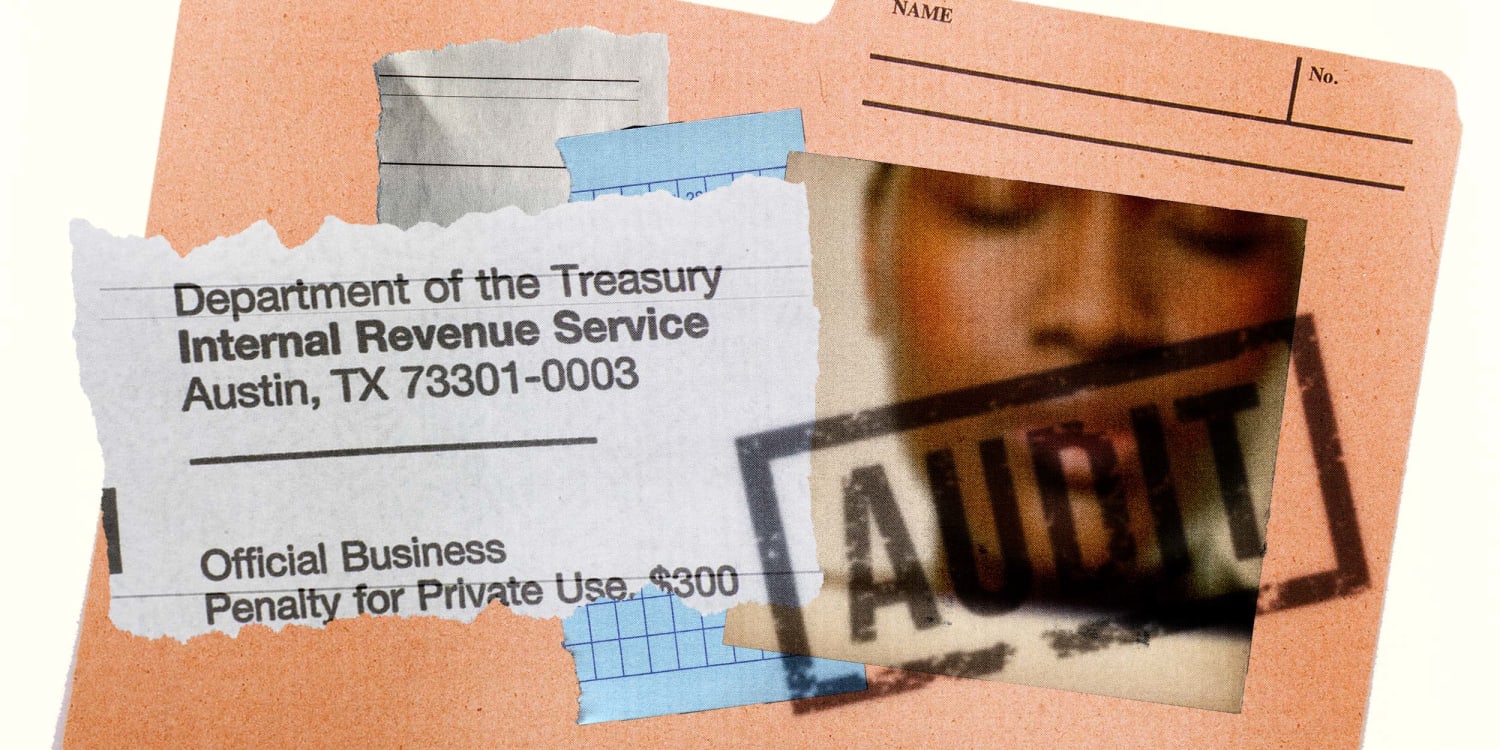The Internal Revenue Service is increasingly acknowledging the presence of racial bias in the nation’s tax system — along with the years of work by pioneering researchers who’ve spent years highlighting the issue.
In a letter sent last week to the Senate Finance Committee, the agency said Black taxpayers are far more likely to be audited than non-Black ones, exposing them to tax penalties. And in January, the Treasury Department revealed that a swath of tax breaks disproportionately benefit white people, leaving many Black people with hefty tax bills and little money left over.
“We are deeply concerned by these findings and committed to doing the work to understand and address any disparate impact of the actions we take,” IRS commissioner Daniel Werfel wrote in a letter to Oregon Sen. Ron Wyden, the chairman of the Senate Finance Committee.

Werfel’s letter cited a study on race and tax audits from Stanford University that attributed the disproportionate auditing of Black taxpayers partly to audit selection algorithms that target specific discrepancies rather than total underreporting. The study prompted a sharp rebuke of the system from Wyden and a vow from the IRS to use its $80 billion Inflation Reduction Act funding to make the tax system more equitable.
But as the Stanford scholars noted, in a nod to “seminal” research that helped inspire their work, Dorothy Brown, a Black tax law professor at Emory University, has been debunking the myth of a race-neutral tax system for years.
Her 2021 book, “The Whiteness of Wealth,” explores the ways U.S. tax policy impoverishes Black people and widens the racial wealth gap in multiple ways, including disparities in tax breaks and exclusion from some benefits.
“It’s very gratifying,” Brown said in an interview. “One of the things I wanted to do with ‘The Whiteness of Wealth’ was inspire other people to take my work a step further, which is what the authors of the Stanford study did. The co-authors of the study have been steadfast in giving me credit for motivating their work. And I so respect them for that.”
NBC News spoke with Brown about the conclusions of her research and policies to address it.
NBC News: What was your reaction to IRS’s commissioner Daniel Werfel’s letter acknowledging that Black taxpayers are audited at higher rates?
Dorothy Brown: I thought it was a big deal that the IRS finally acknowledged that race has played a role in their enforcement activities. They came out and validated the results of the Stanford study that showed that if you were Black and filed for the Earned Income Tax Credit you were three to five times more likely to be audited. In years past, the former IRS commissioner testified before Congress that the IRS doesn’t discriminate or treat anyone differently based on race and it’s obvious that simply isn’t true. So that this new commissioner acknowledged that is a big deal.
NBC News: What do you consider some of the biggest aspects of taxation that target Black people or make us particularly vulnerable?
Dorothy Brown: The way you get to pay fewer taxes is to have income from stock or gifts and inheritance. And we know that, given the racial wealth gap, gifts and inheritances are going to disproportionately benefit white Americans. So to the extent that Black Americans get most of our income from wages that are taxed at the highest rates and not income from stocks, Black people are left behind.
There’s a singles penalty. If I’m single and I earn $50,000, my tax bill is gonna be higher than if I’m married and I earn $50,000 and have a stay-at-home spouse. Black Americans are more likely to be single so we pay the singles penalty.
Every [Tax Day on] April 15, Black family wealth gets depleted. So over generations, it’s just wealth depletion, wealth depletion. Whereas for white Americans, every April 15 it’s wealth building, wealth building. The tax system right now is a builder of wealth for some people and a depleter of wealth for others.

NBC News: The IRS says it doesn’t collect information on race or ethnicity from taxpayers. So how have you found that these racial disparities have been able to persist for decades?
Dorothy Brown: It’s an example that systems of oppression operate whether there’s intent to oppress or not. The fact of the absence of race data by the IRS doesn’t mean tax law operates in a colorblind manner. The IRS’ defense was: We couldn’t possibly be discriminating because we don’t have your race. But here’s why I never bought that: What the tax return has is ZIP code data and first and last name. If you give me a ZIP code, I can tell you racial information about who’s living there. Even though the IRS says we don’t collect race, the tax return has information that’s a pretty decent proxy for race.
NBC News: What gave you the idea initially that race wasn’t a significant factor in taxation and what changed that for you?
Dorothy Brown: In the tax courses I took in law school, race was never mentioned. In fact, the way we were taught, and this is my takeaway, was that the only color that mattered was greed. It wasn’t until I became a law professor and read an article by a mentor that, toward the end of the article, said, “How do you know there isn’t a race and tax problem, if you don’t look?” I picked up the phone, called the mentor and said, “I don’t know what I’m gonna find, but I’m gonna look!” And the rest is history. I call myself an accidental race and tax scholar.
NBC News: In your book you wrote, “Taxpayers bring their racial identities to their tax returns.” What did you mean by that and why are those racial identities important in the tax system?
Dorothy Brown: The first thing is we bring our address. We live in a racially segregated society so where I live has a lot to do with my race. Where I work and get a W-2 has a lot to do with my race — occupational segregation. There are certain jobs that are disproportionately white and there are jobs that are disproportionately Black and the jobs that tend to be disproportionately white tend to come with tax-free benefits like retirement accounts and health insurance. And there are other jobs that are disproportionately Black that do not come with those tax-free benefits. So being Black in the world translates into our tax returns in a way that makes it more likely for Black Americans to pay higher taxes than their peers. We’re bringing our racial identities onto our tax returns because our tax laws operate differently based upon a taxpayer’s race.
NBC News: What are some ways we could begin to address and correct these disparities?
Dorothy Brown: Here’s my fix, tax income from stock at the same rate as income from labor. No tax loopholes for income from stock, because that tax loophole associated with stock goes to white Americans. Another fix I would have is enforcement. Require the IRS to annually report on its enforcement activities by race. If they find a disparity, they fix it and they transparently tell us how they’re going to fix it.
Source: | This article originally belongs to Nbcnews.com










